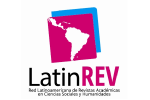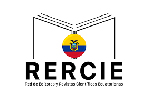Artificial Intelligence: Between Reductionist Thinking, Automation, and Collective Intelligence in the Age of Posthumanism
DOI:
https://doi.org/10.18537/iuris.20.01.05Keywords:
artificial intelligence, artifactuality, posthumanism, collective intelicenceAbstract
This article addresses the impact of Artificial Intelligence (AI) on teaching and learning
processes within the context of posthumanism. The central problem of this research is that AI is
still approached from a mechanistic, artifactual perspective in educational processes. Therefore,
the objective of this study is to promote a new epistemology for using this tool, focusing on the
development of critical and connected thinking.
The methodology employed in this work used a descriptive method, starting from class
observations, descriptions, and documentation of the phenomenon under study. Regarding the
research technique, the study relied on documentary analysis of high-impact repository texts that
provided a historical, theoretical, and trend-based framework through a review of the state of the
art of AI and its impact on the educational sciences.
The article concludes that AI's role in fields such as the educational sciences tends to foster an
approach where the tool achieves a balance between resource and subject. AI is seen as an ally in
processes of innovation and the production of new knowledge, through an exercise of
participation and co-creation within the new media ecology of the digital or posthuman age.
Downloads
References
Boden, M. A. (2018). Artificial Intelligence: A Very Short Introduction. Oxford University Press.
Braidotti, R. (2013). The Posthuman. Polity Press.
Castells, M. (1996). La era de la información: economía, sociedad y cultura. Alianza Editorial.
Domingo, M. C. (2021). The Future of the Internet: Towards Web 6.0. Journal of Emerging Technologies, 45(3), 15-20.
Feenberg, A. (1999). Questioning technology. Routledge.
Forero-Corba, W., & Negre Bennasar, F. (2024). Técnicas y aplicaciones del Machine Learning e Inteligencia Artificial en educación: una revisión sistemática. RIED-Revista Iberoamericana de Educación a Distancia, 27(1), 29-54. https://doi.org/10.5944/ried.27.1.37491
Habermas, J. (1971). Ciencia y técnica como ideología. Taurus.
Hermann, A. (2011). La pedagogía del ciberespacio: hacia la construcción de un conocimiento colectivo en la sociedad red. Sophia, 11, 119-132.
Latour, B. (2000). Teoría del actor-red: Un nuevo paradigma de la sociología. Editorial Anthropos.
Lévy, P. (2004). Inteligencia colectiva: por una antropología del ciberespacio. Organización Panamericana de la Salud.
McLuhan, M. (1964). Understanding media: The extensions of man. McGraw-Hill.
Paul, R., & Elder, L. (2014). Critical thinking: Tools for taking charge of your learning and your life (3rd ed.). Pearson.
Russell, S., & Norvig, P. (2020). Artificial intelligence: A modern approach (4th ed.). Pearson.
Siemens, G. (2004). Conectivismo: Una teoría de aprendizaje para la era digital. Consultado en https://www.calameo.com/books/0048834760cc0853160a3
Tramallino, C. P., & Zeni, A. M. (2024). Avances y discusiones sobre el uso de inteligencia artificial (IA) en educación. Educación, 33(64), 29-54. https://doi.org/10.18800/educacion.202401.m002






